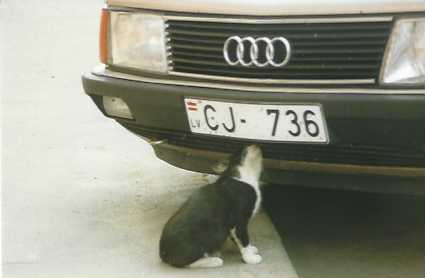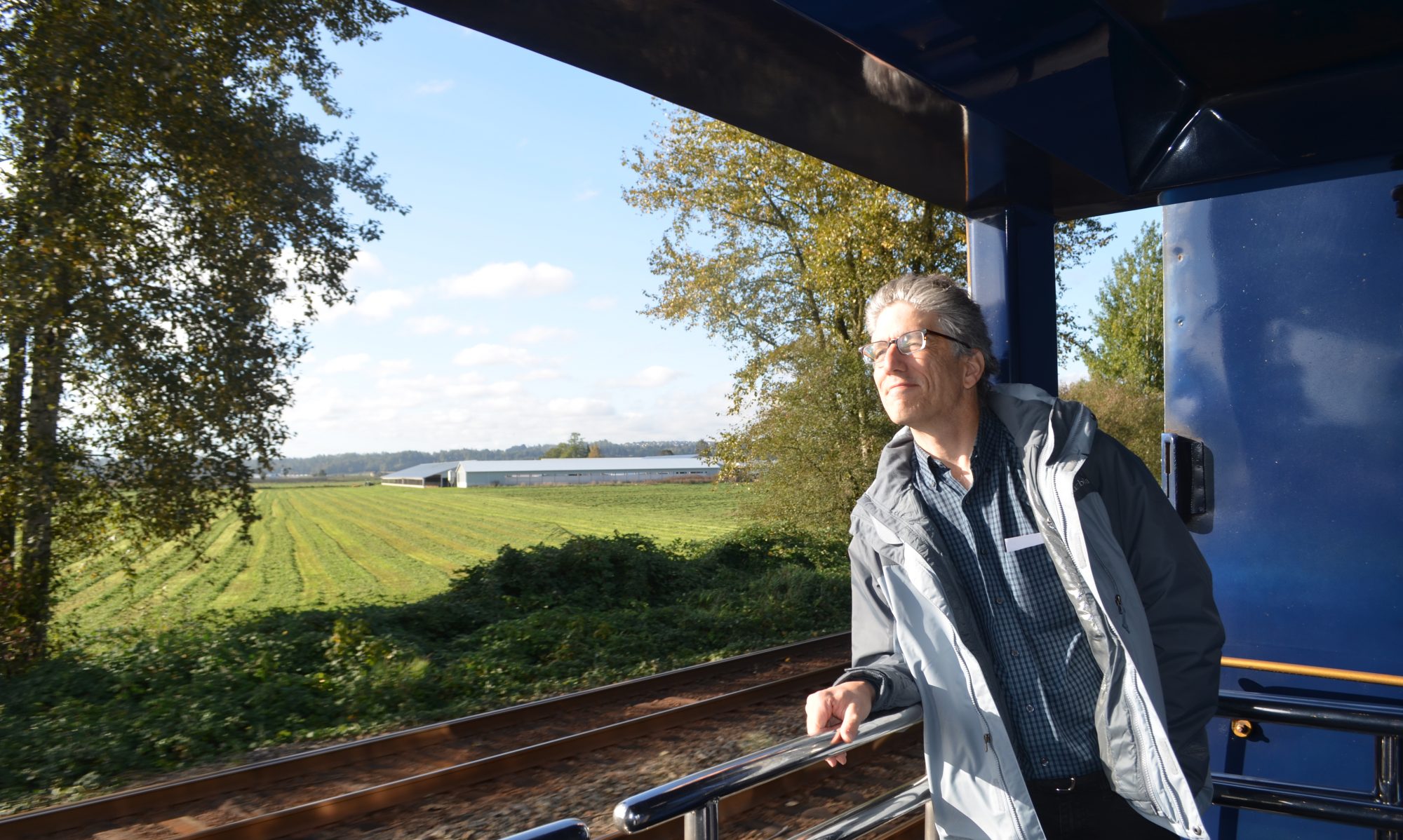Feeling Lonely for the Days of Loneliness

“I want to be alone.”
–Marlene Dietrich.
Ah, Leningrad, now there’s a city.
Even if its name has been changed back to St. Petersburg.
Even if the weather was much so much colder than Moscow that I froze my ass off in the morning when I got off the train in my shorts.
Of course, I probably would have enjoyed it more if the travel agency that made our hotel reservations and gave us the address had been thoughtful enough to provide a map showing where it was located. Then we wouldn’t have frozen our butts off while walking in the wrong direction and then spend five minutes asking directions from a policeman using a combination of German, French and a dash of pidgin Russian to get directions.
Even this setback wasn’t enough to dampen my enthusiasm for the city. And for good reason.
Moscow may have wide boulevards like St. Petersburg, but the former Leningrad has much better stuff on those streets. Like nicer, better-kept buildings. While Nevsky Prospekt, one of St. Petersburg’s main streets, boasts a variety of architectural styles from throughout the city’s 300-year history, the separate styles don’t clash the way buildings in some cities do. In addition, the streets are clean, well maintained and, as Chris put it, “looked very European.” Having never been to Europe, I took his word for it. It did seem self-evident that the city should have a European look — after all, it was in Europe.
The one thing I did know was that I liked the way the newer buildings, palaces, orthodox churches and memorials co-existed without overshadowing each other. I was also thankful the city fathers had not felt a need to tear down old buildings to make way for new modern office buildings or parking lots.
And then there were the parks and canals, which give a sense of open space to what could have been a concrete jungle. Plenty of parks are located within a block of Nevsky and a few are right on it.
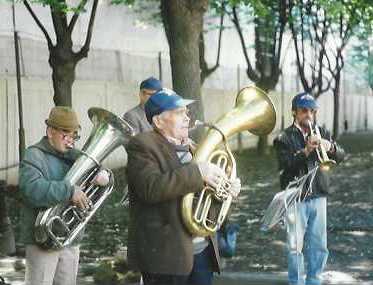
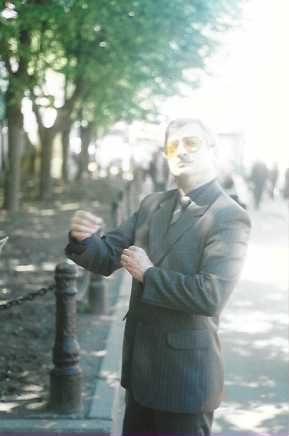
Despite the early morning chill, it was an ideal day to stroll down the Prospekt because it was Sunday and the sidewalks and parks were filled with people enjoying the weekend. There was even a Dixieland-Jazz band-cum-oompah troupe playing near the exit to the subway station on Nevsky. When the conductor of the band noticed me listening appreciatively, he asked where I was from. Upon hearing America, his band broke out into a rousing rendition of “When the Saints Come Marching In.”
The only thing missing was street food. There were ice cream stands and kiosks, but not one that sold home-made pieroshkies, blintzes or roasted potatoes, and I was pining for it. Hell, I was addicted to it. We ended up going to indoor cafes, instead. Each time we ate at one, however, Chris would order something and be brought a huge plate of food while I always found the one thing on the menu that was over-priced and under-portioned. It wouldn’t have been so bad if the restaurants were cheap, but they weren’t. Instead, their prices were higher than similar restaurants back home. The more restaurant shopping we did, the more I noticed over-inflated prices, considering what we were hearing about Russia’s economy. Still, the restaurants were often so filled with well-dressed locals that the eateries could have easily been anywhere in The States.
The more I thought about it, the more I realized that was the point. Many of the patrons in these restaurants likely were the lucky minority who had found wealth in a topsy-turvy economy and wanted to flaunt it the same way Americans do — by going to pricey restaurants. They were trying to out-capitalist the capitalists. And if this capitalist was any indication, they were succeeding. Nightclub prices were so high we reconsidered a night on the town and went back to our hotel, lonely, tired and bored.
We weren’t alone long.
The next day four people from the group reached the hotel and, for some reason, we felt peer pressure not to do anything until they joined us. So, we sat around the hotel waiting for them to wake up. Apparently, they were doing the same thing. Since hotel management wouldn’t tell us the room number of any other guest, we had to wait. We’d left a message at the desk with our room number on it, but Chris and I weren’t altogether convinced the staff didn’t throw it away once we left the lobby. As it turns out, they were waiting for us, too, because they thought we were still asleep.
It was then that traveling with the same people for more than a week started taking its toll. As nice as Chris was, I was tiring of spending all my time with him and I suspect he was beginning to feel the same, but was too nice to say anything. When the rest of the Moonsky Star contingent showed up and we had to sit around waiting, I felt like I wanted to run naked and screaming through the streets just so I could get away. An overcrowded jail cell and an overly friendly guy named Feodor or Alexei hardly seemed the solution to my problems, though, so I kept my clothes on and my mouth shut.
Even their presence wouldn’t have been so bad if it weren’t for the expectation we had to do everything together. We had to wait so we could go to Baltic embassies together to get visas, we had to go get our train tickets together, we went to the American Express Travel Service office so we could exchange dollars for rubles and we all had to visit the same tourist attraction even if some of us weren’t interested. Staying at the hotel by myself was unthinkable. I vaguely recall that I was a solo traveler but it was getting to the point I almost couldn’t remember what traveling by myself was really like. I took the opportunity to break free from the group when we reached the Peter and Paul Fortress (built before Mary joined the group) and all the others decided they wanted to pay $5 to tour the museums on site. The tickets cost more than I wanted to pay and I saw it as an opportunity to be by myself for an hour.

The Peter and Paul Fortress is where St. Petersburg got its start as a city. As the story goes, Peter the great built the fortress on the bank of the Neva River to protect the city from the Swedes, but I’m not so sure. I mean, what threat could the Volvo-loving Swedish have posed to this country. An ABBA insurgency? An Ikea uprising? Apparently, the Russians must have realized how ridiculous this fear was some time in the early 1800’s because the Tsars finally turned it into a Russian Port Arthur, one of the country’s most deadly prisons. I’m not saying this was an improvement, I’m just saying it made more sense for an oppressive oligarchy to have a place to torture and abuse the masses than it did for it to have a place to defend itself against a country whose only Battle of Waterloo came in the form of a song with four part harmony.
The fortress wasn’t the only landmark that stumped me, though. The Tsar’s Winter Palace, known as The Hermitage, also confused me. For starters, when we went into the museum of the Winter Palace I hoped to get a glimpse at the way the tsars lived and how they decorated (after all, who knows, maybe bad Feng Shui sped up the Russian Revolution?), but NOOOOOOO! Instead of showing how the other half lived, all it showed was art, art, art as far as the eye could see. Many travelers had told me what a wonderful place it was, but not one had mentioned that it was an oversized art museum (and when I say oversized, I do mean oversized. The building covers more than xxx acres and is so large it’s almost impossible to fit the entire thing into a photo using a standard wide-angle lens, even from across the street). Sculptures, paintings, tables, samovars, ashtrays, whatnot shelves. Don’t get me wrong, I don’t hate art, I wasn’t in the mood. Besides, I wanted to see moats, stocks and dungeons and all the good shit that a hereditary monarchy entails.
The whole thing made me want to write a nasty letter to the National Endowment for the Arts. After all, why was the U.S. giving the Russians all this money in NEA grants if they were just going to spend it on art, anyway? Why can’t they be more American and spend it painting poetry on cows or putting upside down Christ statues in urine?

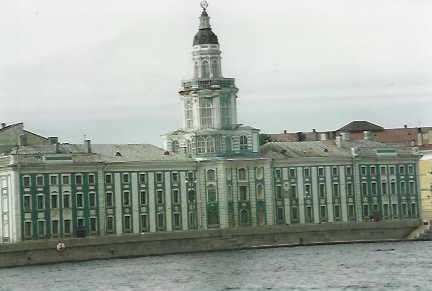
What befuddled me most was the building’s name. Why The Hermitage if it’s in the heart of a city? Hermits don’t live in cities, they live in the country, in caves, in forests, on hills and places that are desolate and removed from population centers. That’s the whole point of being a hermit. When hermits get away from it all, they get away from all of it.
Fortunately, after two days hanging out together, The Hermitage was the last place we went as a group because Chris and I were taking evening trains while the rest of the gang stayed behind. Because we still had several hours to kill before our trains left, Chris and I went on a shopping spree to get rid of rubles because we were told the currency wasn’t convertible, buying anything we could think of. He purchased lemon vodka in a can and food for his 36-hour ride to Berlin; I bought a flag with a picture of Lenin, two kids saluting a flag and a paragraph in Russian. Although the man who sold it to me told me it said “Best Worker in Commune,” I suspected it said something like, “Some Americans are so dumb they’ll buy just about anything for a souvenir.” (It turns out that the words are the oath of the Young Pioneers of the Communist Party, Russia’s Boy Scout oath.)
We also stopped at Passage Department Store. While a department store may not be a big deal to most people, it fascinated me because it was so different from what I was used to. That’s because U.S. department stores are places like Nordstrom, Sears and JC Penney, which are big stores filled with departments all owned by the same company. Not so in St. Petersburg where it’s all in one big building but all of the shops are independently owned.
By the time the shopping ended, Chris had enough for several meals on the train and I had a pirated Sting tape and enough for a few snacks. Hey, I’m not proud. I’m embarrassed that I’d bought black market music, but I wasn’t looking for stereo sound, I just wanted something to listen to on the train.
Once we got to the station, I couldn’t get on the train fast enough even though it wasn’t due to leave for another hour. It was just nice to get back to solitude. By now it had been almost two weeks since I’d had any time to myself and I knew I’d be lonely for the first hour. I also knew I needed to get back to getting around by myself or lose my edge.
I didn’t have the train compartment to myself long. Ten minutes before departure a married couple took seats in the same berth. I still felt like I had the room to myself, though, because we didn’t speak the same language and they were so quiet they weren’t there at all. An hour after we left, the woman got under the covers on the lower bunk while her husband just sat at the end of the bed saying little. Even when she turned out the lights around midnight, I don’t remember him moving despite my staying up much later to work on my journal. I don’t think he ever lay down.
Looking back on it, I’m not quite sure they were ever there at all. When a guard woke me at Russia’s border with Latvia, they were gone without a trace. Not even so much as the beer he drank, the tea cups they used or random scraps of paper. Everything on their side of the compartment had vanished, including bedclothes.
It was indeed bizarre.
